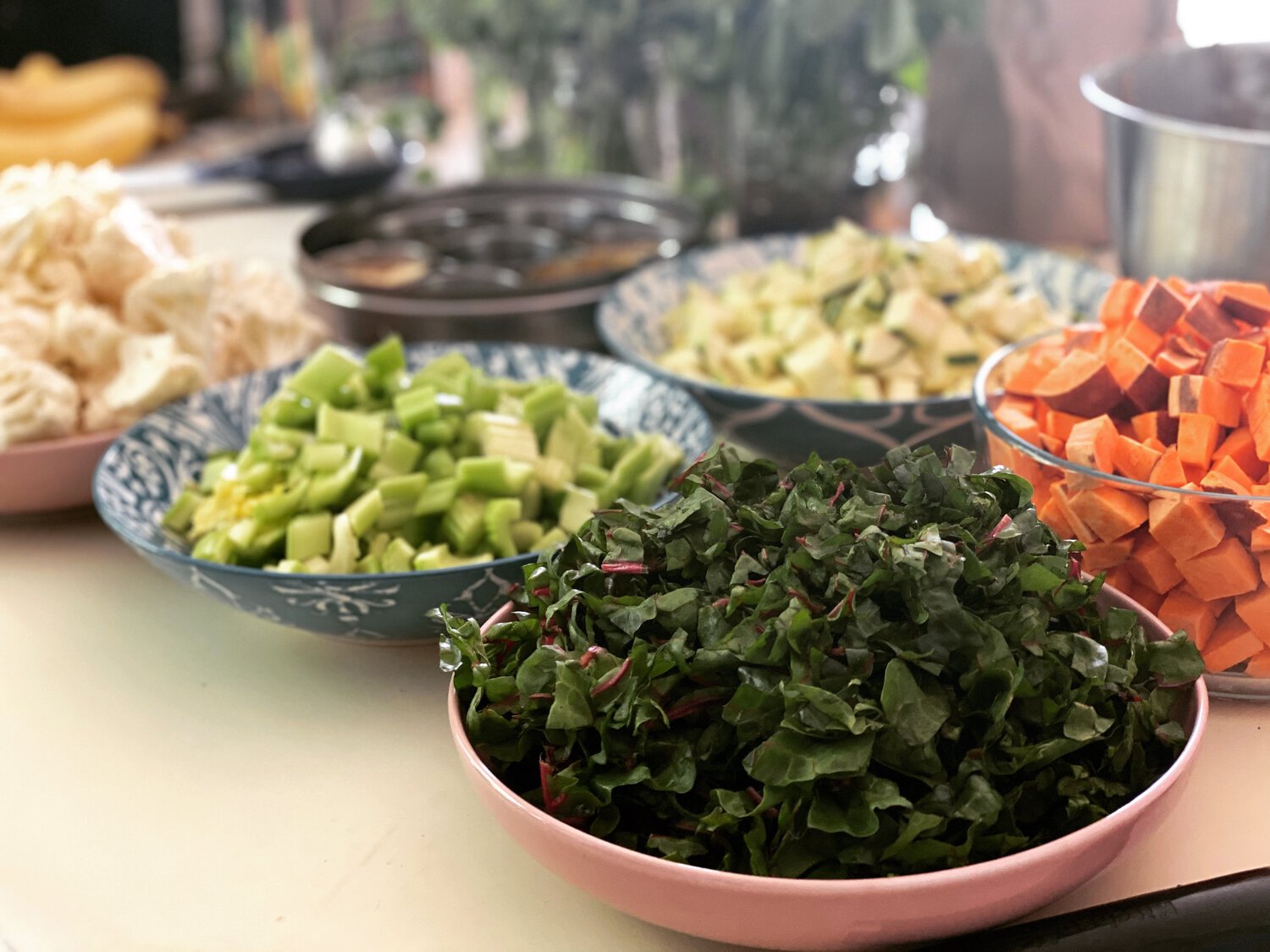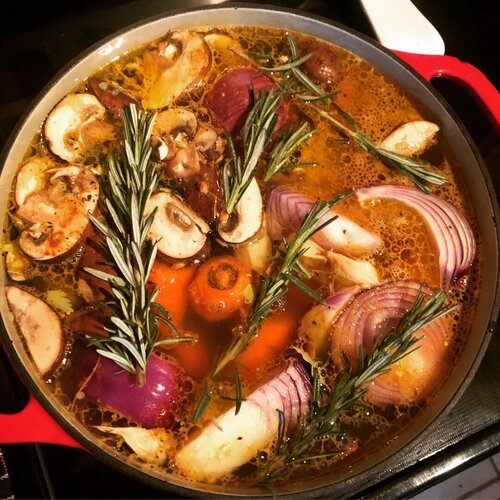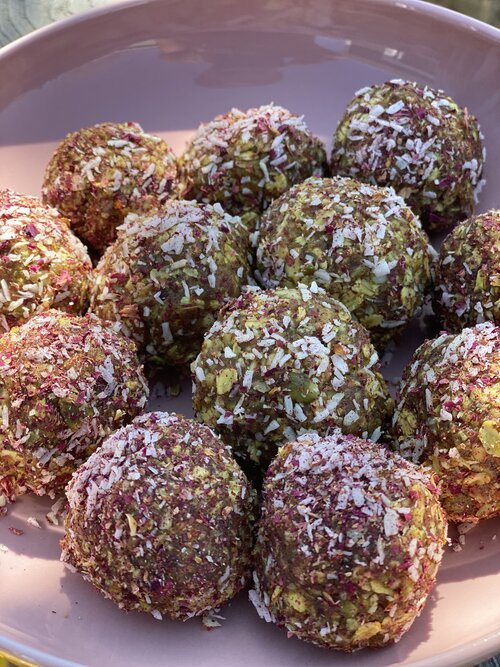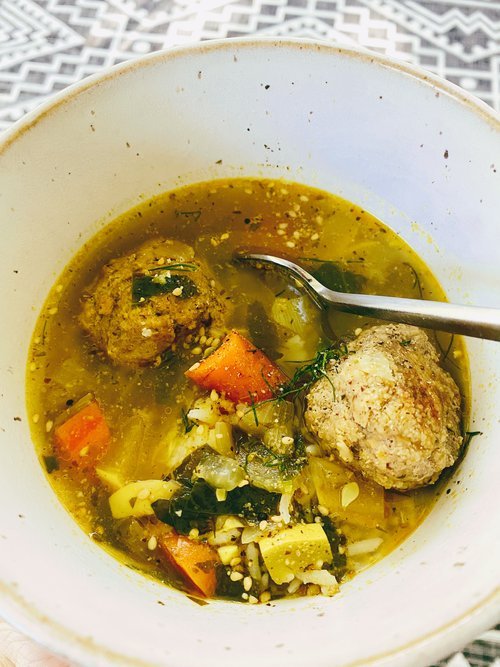
Postpartum Care
What comes next
Ayurvedic Certified Prenatal + Postnatal Specialist - Ayurved Sadhana Vidyalaya (Superior, Co)
Our society spends so much time preparing for baby that oftentimes, preparing for the postnatal season is missed! Prior to childbirth, Alyssa assists each family member with re-defining roles once the baby is here so that parents feel very well-supported. This includes Ayurvedic Medicine education on individualized recipes to treat health conditions, foods, herbs, and spices to assist with a healthy milk supply, assist with sleep, hormonal balance, and parent-led infant massage. Lastly, birthing persons can experience Abhyanga Warm Oil Treatments, a circulatory and lymphatic traditional Ayurvedic massage, within their homes.
Transition into life at home with a newborn
Pet care
Meal preparation (as an Ayurvedic Practitioner In Training, Alyssa will assist you with individualized meal suggestions based upon your health needs and your constitution or prominent dosha, one of three fundamental bodily bio-elements.)
Light house cleaning
Ongoing emotional support
Ayurvedic Postnatal Nutritional Support for Mother (Individualized Depending on Birthing Person’s Postnatal Health)
Warm Medicated Oil Body Treatment (Also known as Abhyanga Ayurvedic Massage)
Referrals to postpartum support - both medical and non-medical
Newborn education
Newborn care
Lactation support - Ayurvedic Breast Care Education
Nursery organization
Sibling care
Assistance with errands
Ayurvedic infant massage education
Newborn overnight care
*If a birth client is wanting any of the above postpartum add-on services, there will be an additional postpartum contract constructed.
What is Ayurvedic Medicine?
And how can we enhance the childbearing years with this ancient practice?
Ayurveda, originating in the Indian subcontinent over 5,000 years ago, is one of the oldest documented medical systems within existence and is known as the “Mother of All Healing”. The Sanskrit definition of “ayur” translates to “life” while “veda” translates to “science” or “knowledge”. From a simplified explanation, Ayurveda encapsulates how we can best live in unison with our specific environment (in Colorado, we live in a dry, high desert alpine climate so we need to incorporate more hydrating and nurturing practices in comparison to areas on the coast). Unlike Western Allopathic Medicine, Ayurveda is a comprehensive Preventative Wellness approach that focuses on balance rather than treating by symptomatology and course of pharmaceuticals. Ayurveda takes into account a total of eight branches: 1) Internal Medicine, 2) Pediatrics, 3) Psychology, 4) Ears, Nose and Throat, 5) Surgery (currently not practiced within the U.S.), 6) Toxicology, 7) Geriatrics, and 8) Aphrodisiac Therapy, Fertility, and Conception.
Of course, Ayurveda cannot replace Emergency Medical Care and Western and Eastern modalities must unite to better support the patient! Ayurveda can be of great use if used after medical procedures and use of certain drugs to rebuild and restore the body, but can’t replace the benefits of Western Medicine in more extreme, acute conditions. Given that Ayurveda is the original circadian rhythm medicine, there are appropriate times to eat, exercise, excrete, work, and sleep. Focusing heavily on food as medicine and the building blocks of our bodies, choosing foods according to season, phase of life, and health conditions is important to enhancing digestive fire or Agni (Sanskrit).
Just like how each individual has a unique fingerprint, each one of us has a unique biochemical composition, constitution, or dosha (Sanskrit) that takes into account our physical, mental, and emotional properties. The five elements are beautifully interwoven into our internal and external worlds and our goal is to have these elements be within balance and to avoid vitiation/imbalance so that diseases of the body and mind are avoided. We all have the elements within our bodies and our environments but in varying proportions. Since there are no words in the English language to describe these doshas or constitutions, we categorize them into the following:
Vata: Air + Ether
Governs blood flow, air circulation, and elimination of waste, and is almost always imbalanced within the postpartum period because the Seat is considered more susceptible to air or Vayu (Sanskrit). Imbalance leads to anxiety, insomnia, cramps, constipation, and disturbance within the nervous system to name a few.
Pitta: Fire + Water
Power of Vision, Digestion and Metabolism, Nutrition, Body Heat Regulation. Present in our lymph and sweat - the “fire” leaving the body. Keeps our bodies soft. Imbalance leads to anger, acidity, thinning of hair, and rashes to name a few.
Kapha: Earth + Water
Provides stability and immunity to the body, lubricates, and brings moisture to our tissues. Imbalance leads to weight gain, lethargy, congestion, and allergies to name a few.
“A new Mother should be treated with massage, warm baths, a specific diet, and herbal drinks that prevent infection, promote vitality, and alleviate Vata (Air/Wind).”
— Charaka Samhita (Ayurvedic Text Dating Back Thousands of Years)
Per Ayurveda, how a Birthing Person is taken care of during the first 42 days after birth sets the tone for the family for the next 42 years to come. Therefore, it is a crucial time for the family to establish balance! Did you know it takes the women’s body at least 1-2 years to fully recover after giving birth? When sleep periods are shortened, having adequate nutritional and herbal support can help nourish the tissues, help purify the blood/plasma, and can greatly influence milk supply. With hands-on Ayurvedic Postnatal Guidance, the Birthing Person is simply allowed to focus on feeding the mind, body, and soul while bonding with their newborn and other family members! Read more about this special time and recommendations at Banyan Botanical .
Ayurvedic healing is based on three important factors:
Decide Patient Fundamental Structure (Dosha).
Learn Cause of Illness (How our Dosha has been impacted over time).
Applying Remedial Suggestions (Daily Routine or Dinacharya (Sanskrit), Nutrition, and Plant Medicine) to Balance the Elements Causing Illness without causing Imbalance.















